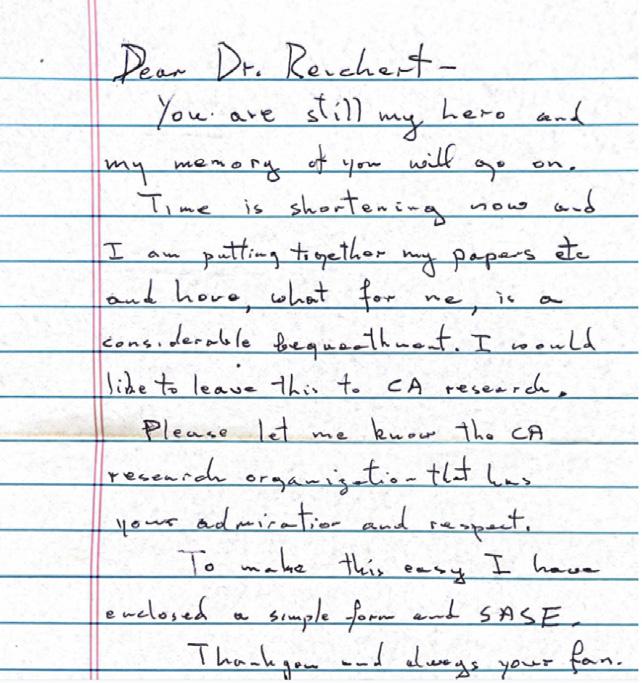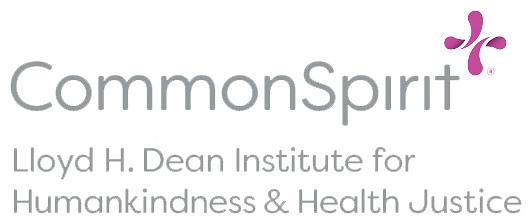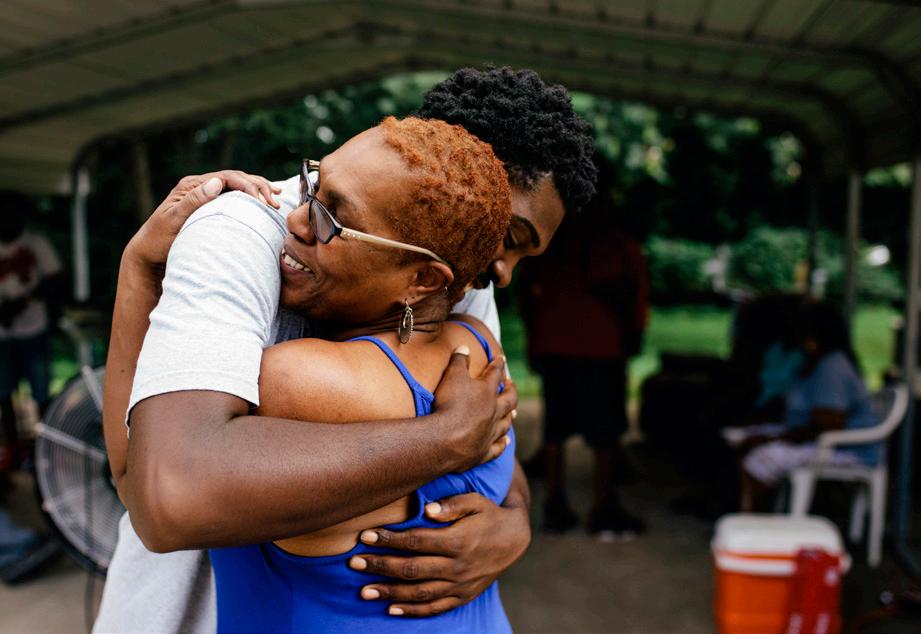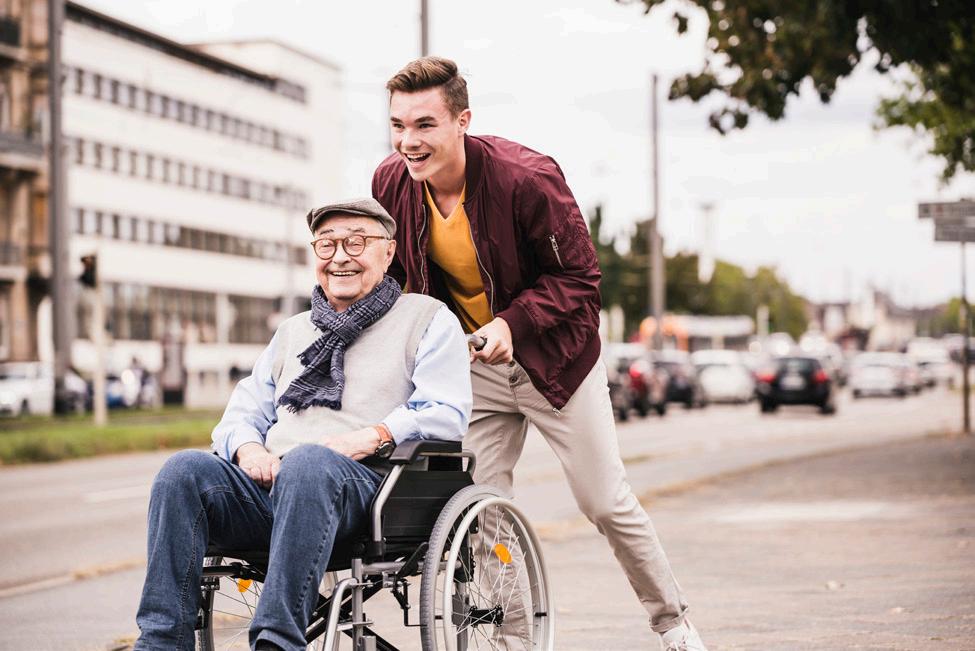
4 minute read
Philanthropic Support
Together, Making a Difference
The work of the CommonSpirit Health Research Institute is made possible by the support of a variety of grant funding and industry sources, as well as philanthropic support secured by the CommonSpirit Health Foundation and the various sister Foundations serving our hospitals and clinics throughout the U.S.
Advertisement
From international corporations to grateful individuals, the impact made when you support our research is profound.
Donors Support Work To Address Health Inequity
More than nine million people in the United States experience peripheral artery disease (PAD) each year. Many risk factors are universal; you have a higher chance of developing this disease if you’re older than 40 or have underlying chronic health conditions such as diabetes and high blood pressure. But, as is the case with many chronic and potentially life-threatening conditions, one of the greatest risk factors is race.
Despite the fact that Black Americans are at least two times more likely to experience PAD than their white or Hispanic counterparts, they are less likely to be screened or to benefit from early diagnosis and intervention. The results can be grim: Untreated PAD can lead to lower-extremity amputations.
But there is hope. CommonSpirit Health’s Office of Diversity, Equity, Inclusion, and Belonging has created a Health Equity Blueprint to address racial and ethnic health disparities that prevent people from accessing care and achieving optimal health outcomes. And with funding from Johnson & Johnson, CommonSpirit is launching a study to identify specific barriers and facilitators to PAD screening in general clinical care settings.
This study will pave the way for a toolkit pilot with a heavy health equity focus, designed to increase PAD screening across various clinical settings in the Sacramento, California, market. Over 12 months, 125 providers will be involved in the pilot, which will clearly demonstrate the efficacy of the new screening protocols being developed. Funding will also support the publishing of a peer-reviewed article on the barriers/facilitators to PAD screening, which will help to inform future research and treatment strategies.
By supporting this study and pilot program, donors like Johnson & Johnson continue to help address the disparities in access to care that have contributed to the disproportionate burden of PAD in certain communities. Donors are contributing to a base of knowledge that will ensure that everyone, regardless of their race, ethnicity or socio-economic background, has access to early diagnosis and treatment for PAD.
Grateful Cancer Patient Pays It Forward for Others
Imagine receiving a terminal cancer diagnosis and being told that you have only a short time left to live. It’s a heartbreaking and terrifying experience that can leave patients and their families feeling hopeless and helpless. But what if there was a doctor who refused to accept this as the end of the road? What if this doctor developed a highly specialized treatment that gave you not just a few more months or years, but an additional 12 years of life? That’s exactly what Dr. Sonia Reichert, a cancer/oncology physician affiliated with Woodland Memorial Hospital, did for one patient.
Thanks to Dr. Reichert’s specialized treatment, this patient was able to enjoy more than a decade of life that he otherwise wouldn’t have had. And he was so grateful for this gift of life that he decided to give back in the most generous way possible — by leaving a legacy to support Dr. Reichert’s research and work. He believed that if it wasn’t for her treatment, he wouldn’t have been able to experience the joys of a cancer-free life that he had during those twelve years before passing of other natural causes.

This grateful patient wanted to see his gifts turn into action and benefit those around him for generations to come. He started his legacy of giving before he passed by donating nearly $500,000 in gold coins to Woodland Healthcare Foundation to finish funding a new research coordinator position.
By supporting Dr. Reichert’s research, donors like this amazing grateful patient, can help ensure that more patients have access to the kind of life-saving treatment, trials, and care that saved this grateful patient.
Mission-Related Work
Mission-Related Work
CommonSpirit Health proudly serves our patients and communities with the intention of a simple but powerful phrase, “Hello Humankindness.” The most basic of terms, humankindness is an act of humanity plus an act of kindness, which results in a moment that feeds and heals the human spirit. The healing power of humankindness is rooted in scientific research and evidence-based medicine that can result in more effective treatment planning and patient engagement, faster healing, and better survival rates in various clinical settings.

Over the last year, CommonSpirit has harnessed our shared humanity and call for kindness by creating the Lloyd H. Dean Institute for Humankindness and Health Justice, led by Dr. Alisahah Jackson as the inaugural president. The institute will serve to amplify existing initiatives and create new models of care that prioritize health equity and social justice. It will also create opportunities for innovation on the science of kindness, compassion, empathy, and trust. We see this innovative approach to fully integrate humankindness in our organizational culture as a way to accelerate improvement in health equity and social justice. As health care continues to evolve to meet the needs of our society, let’s not forget that everyone wants to be seen and heard, everyone deserves grace, and ultimately, one of the most important things we can do to accelerate health and healing is to treat everyone with kindness and compassion.


Even with the advances made, we acknowledge that there continue to be gaps that are widening for some populations. The time is now to approach the work differently and go back to the heart of our humanity. With the belief that kindness is essential to basic human health for everyone, the future of health care must move beyond addressing systems and barriers that impact health well-being and evolve towards health justice.







